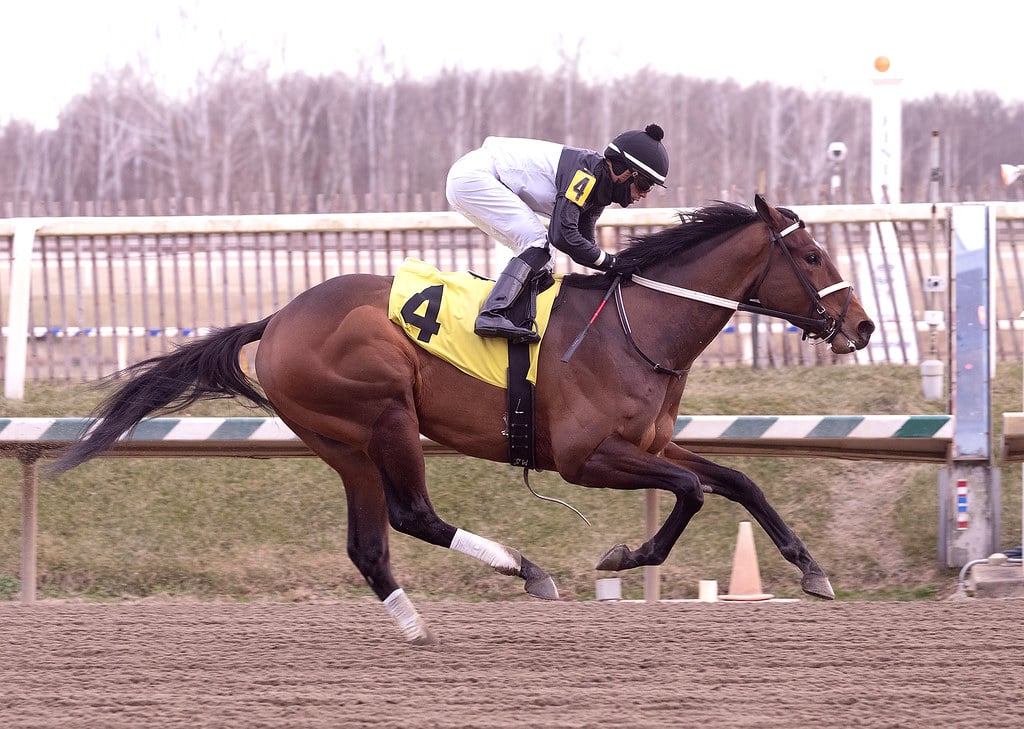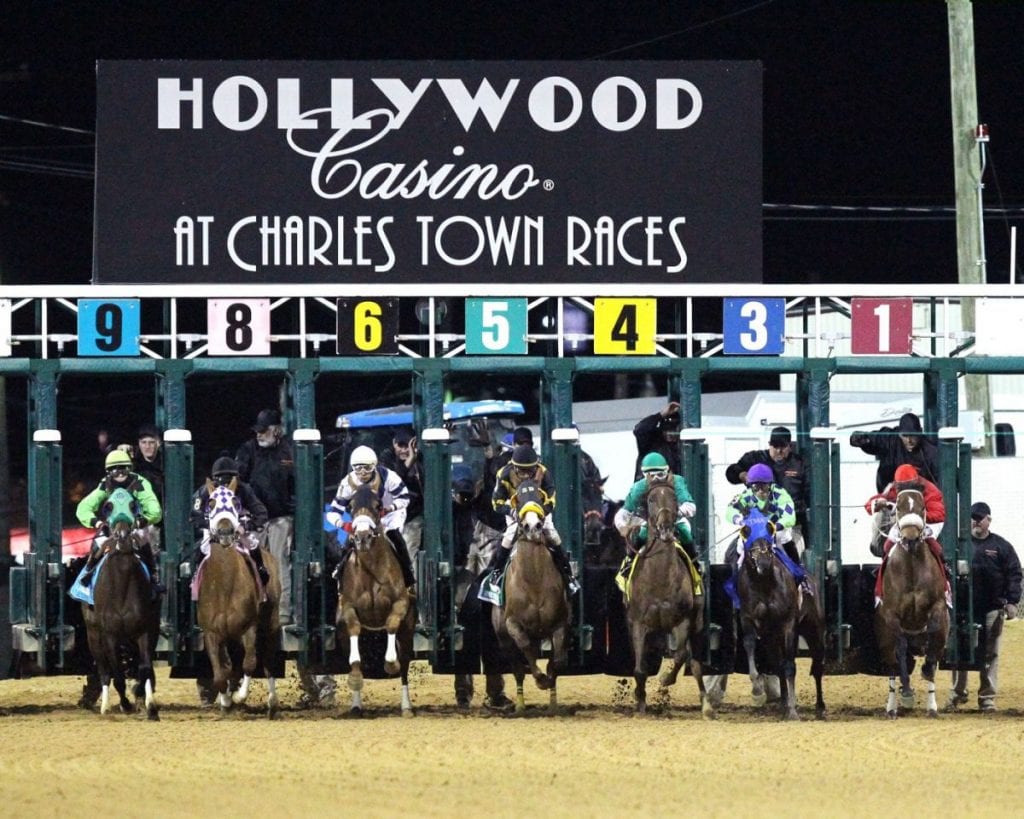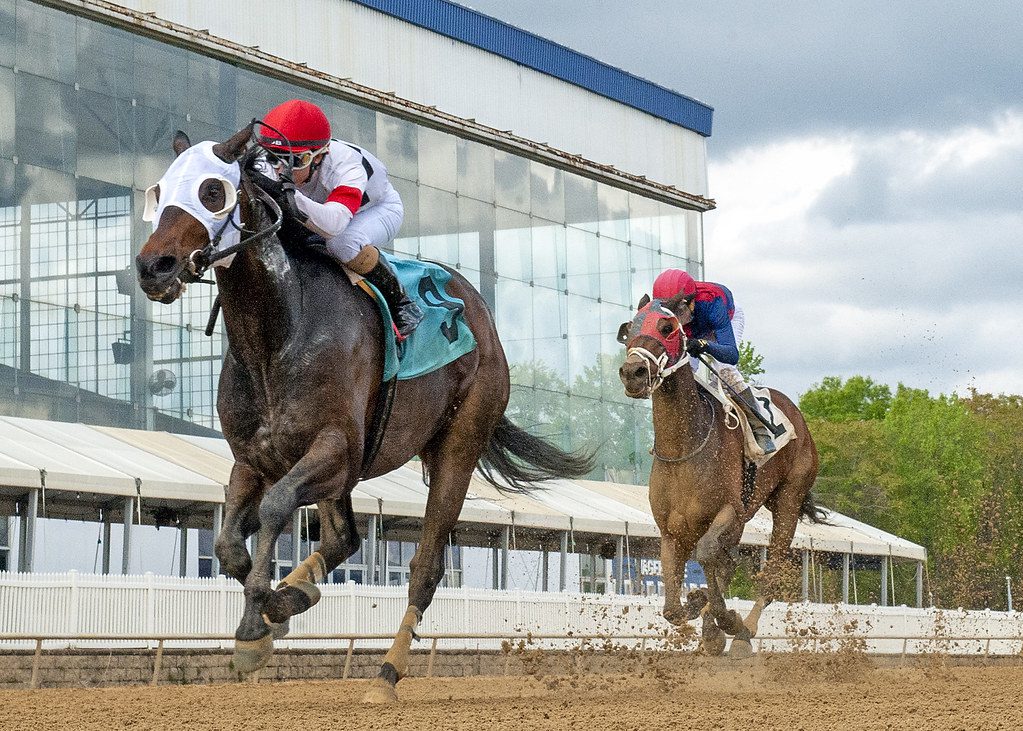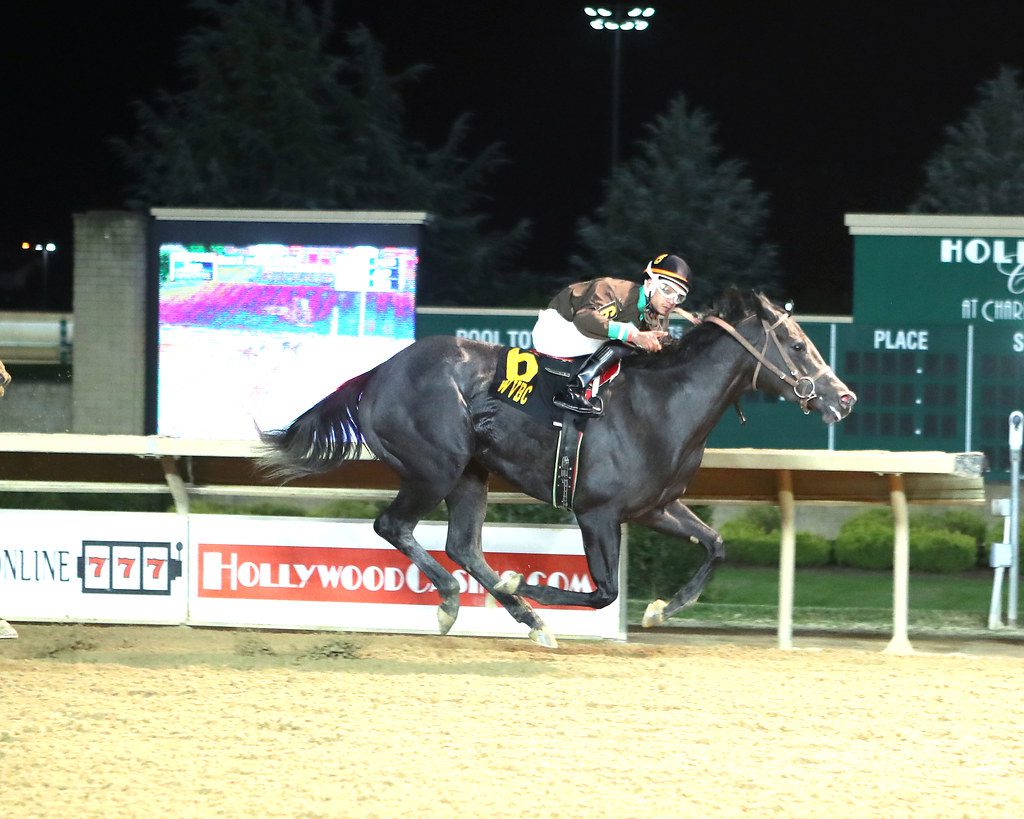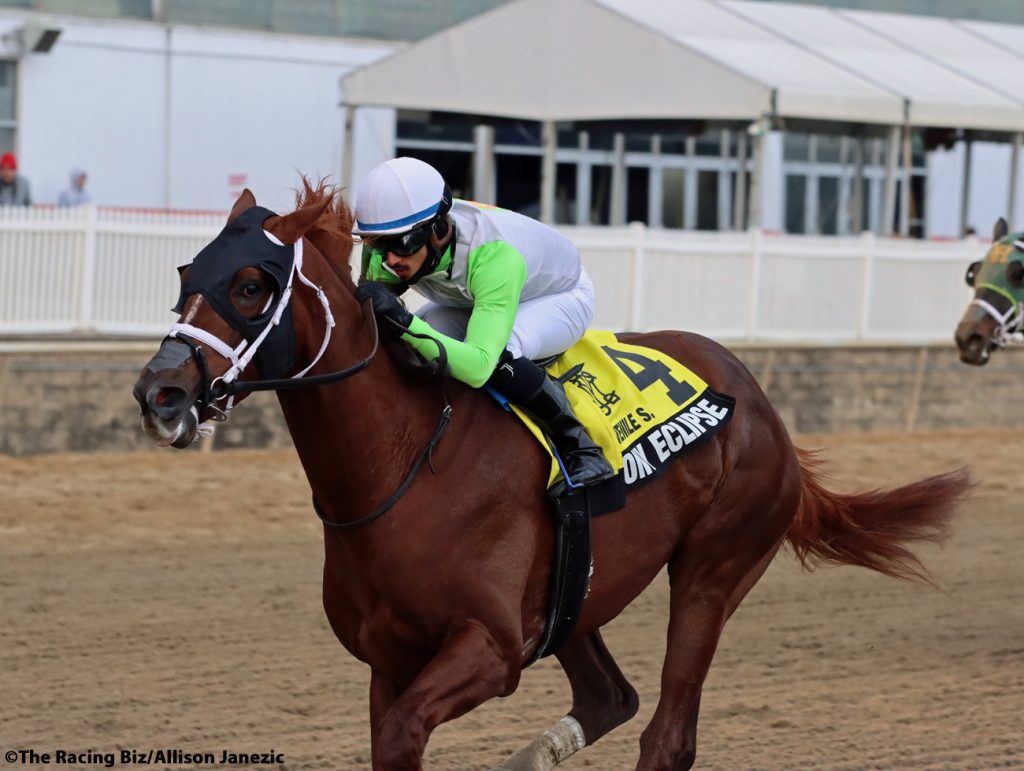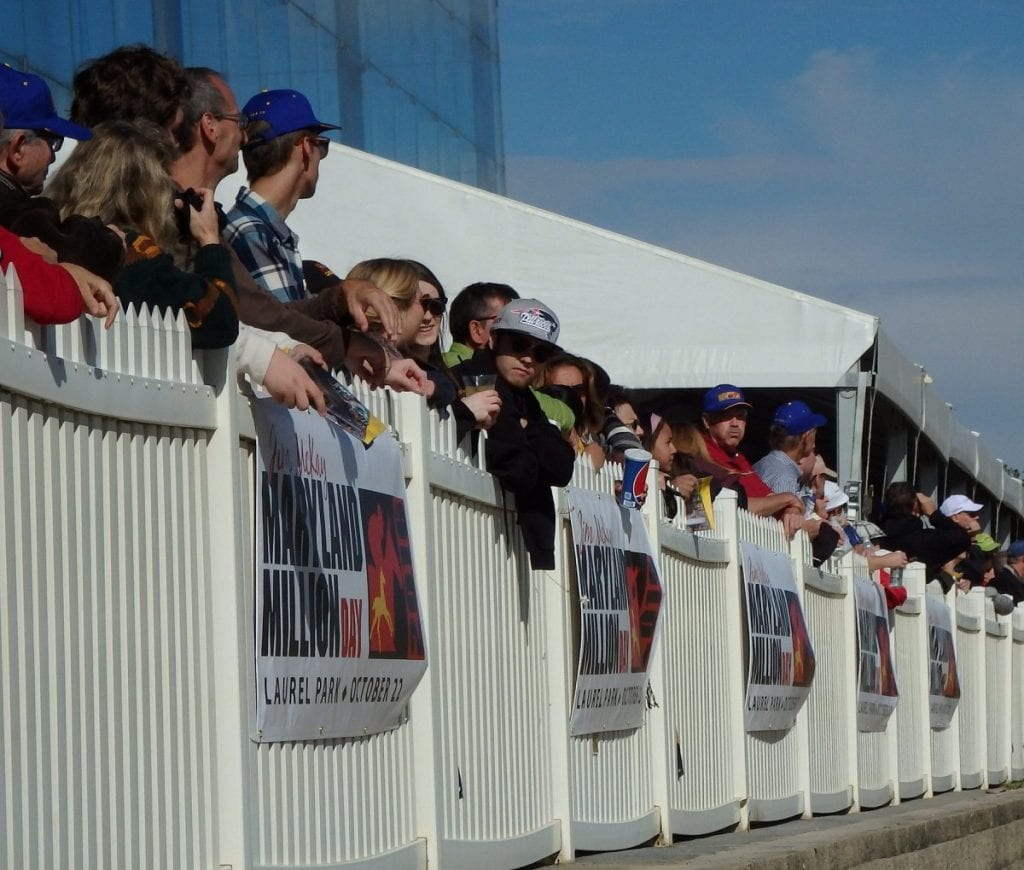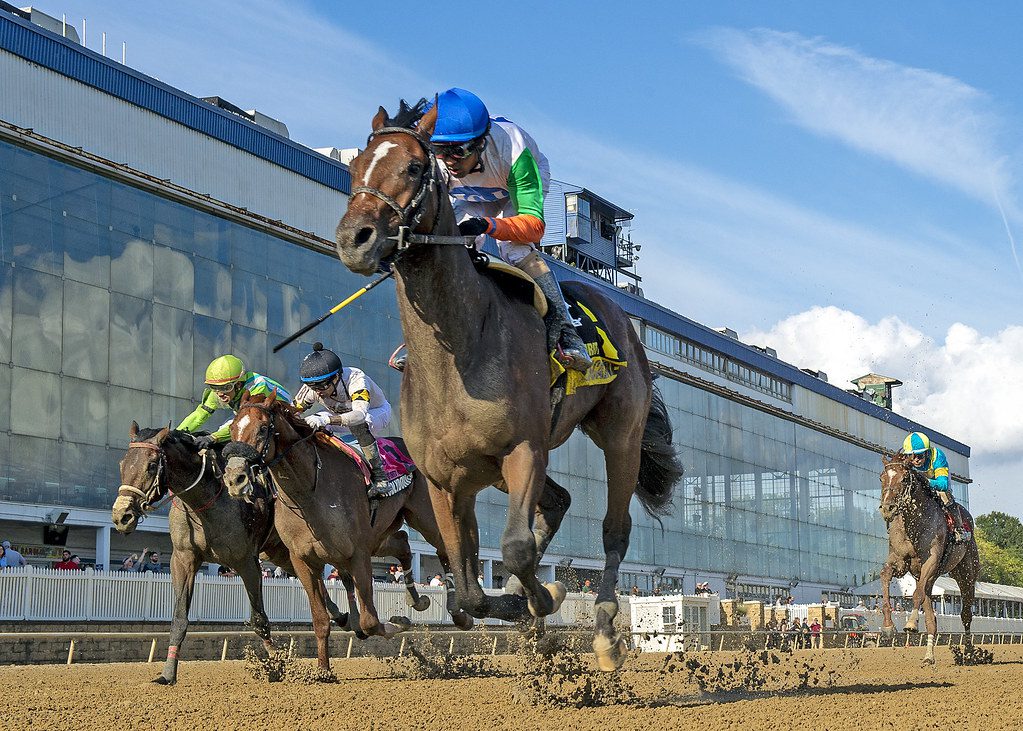PA RACING INTERESTS AIM TO PROTECT RACE HORSE DEVELOPMENT FUND

Pennsylvania Governor Tom Wolf’s recently unveiled budget proposal would shift $199 million from the state’s Race Horse Development Fund, a move that racing advocates say would serve to cripple the Commonwealth’s racing and breeding industry. It’s the second straight year Wolf has proposed to shift the Fund’s moneys to support education.
Wolf, a Democrat in his second term, issued his proposal for Pennsylvania’s 2021-22 budget on Feb. 3. The governor’s proposed budget of $40.2 billion is an increase of $3 billion, or 8.2 percent over the 2019-20 budget.
The Race Horse Development Fund is derived from monies wagered on slot machines at the state’s brick-and-mortar casinos and serves to bolster race purses and breeders awards and incentives.
Wolf’s plan, introduced in the new budget, would again shift earmarked horse racing funds generated by casino slot machine gambling to create a college scholarship program for students of low-and-moderate income families intending to enroll at schools that are part of the Pennsylvania State System of Higher Education.
“There is a student loan debt crisis across our country,” Wolf said in introducing his plan. “It’s a burden on young people and their families that can last for years and holds them back.”
Horse owners, breeders and state legislators are again railing at Wolf’s proposal to decapitate a $1.6 billion per year industry that supports more than 20,000 jobs.
According to The Jockey Club, the number of live foals born in the Commonwealth increased by 50.4 percent from 2019 to 2020, while the the number of Thoroughbred mares bred rose by 54 percent between 2016 and 2020.
Both of those statistics are down on a national level, thus showing Pennsylvania bucking the national trend. But longer term stats paint a more complicated picture, with explosive growth after the introduction of the Fund followed by a period of decline and now partial rebound.
- LRL: Promising Lonesome Road romps in allowance
 Lonesome Road, a half-brother to Grade 1 winner Mindframe, improved to 2-for-2 on dirt with a dominant allowance win Friday at Laurel Park.
Lonesome Road, a half-brother to Grade 1 winner Mindframe, improved to 2-for-2 on dirt with a dominant allowance win Friday at Laurel Park.
Pete Peterson, executive director of the Pennsylvania Equine Coalition, noted during last year’s kerfuffle that Wolf signed 2017 legislation changing the Race Horse Development Fund into a trust fund with explicit language forbidding its use for other purposes.
Peterson, speaking February 6 on FOX 56 television in Wilkes-Barre, addressed the horse industry’s economic impact to racing, breeding and agriculture.
“When people think about horse racing, they tend to think it’s individuals who work at a racetrack for example, but really the impact is much broader,” Peterson said. “There are people who either work in the industry directly or rely on the industry for their jobs, so you have everything from veterinarians to blacksmiths that are directly related, but you have horse breeders, you have people who work at the farms who care for the horses.
“Then you get all the farmers who provide the feed and the hay at the feed mills in Pennsylvania that rely on the horse racing industry as their consumers. Then you have the construction industry. People who build farms, build fences and repair the barns and fences for the industry. So, it really has a much broader impact then I think many people realize,” Peterson said.
Several state legislators are again throwing their support to the aid of their equine industry constituents.
State Rep. Tom Mehaffie, (R-Dauphin County) noted that the Race Horse Development Fund is currently down about 25 percent due to the COVID-19 related closures of casinos in 2020. The state’s brick-and-mortar casinos are currently operating at a 25 percent capacity level.
“Those revenues are not coming in because of the pandemic. The thing I get upset about is that these funds are needed for people who work as farmers or at the track,” Mehaffie said. “The industry has done a great job of advocating for itself over the years. The governor doesn’t understand how (taking these funds) would affect the industry. He has to stand behind his agreements. It would be irresponsible to try and raid the trust fund.”
Mehaffie remains bullish on the Commonwealth’s status in racing and breeding.
“This state is primed for racing, both Thoroughbred and Standardbred,” Mehaffie said. “We have some of the greatest horse farms in country, second only maybe to Kentucky.
State Rep. Sue Helm (R-Dauphin/Lebanon) said in a statement that she will work to ensure the Commonwealth’s racing and breeding industries are not gutted.
- CT: Emotions high for McKee after My Girl Bridgit scores
 Cynthia McKee had to fight to keep her emotions in check after her My Girl Bridgit dominated her career debut, calling up bad and good memories.
Cynthia McKee had to fight to keep her emotions in check after her My Girl Bridgit dominated her career debut, calling up bad and good memories.
“Once again, the governor wants to bankrupt Pennsylvania’s horse racing industry in order to pay for his administration’s overspending. The logical answer would be to allow businesses to open, get people back to work and bring in more revenue for the state, but this administration is clearly set in its ‘tax and spend’ ways,” Helm said. “I stood strongly in support of Pennsylvania’s horse racing industry last year and I am proud to do so again this year.”
State Senator Camera Bartolotta (R-Greene/Beaver/Washington) said on a Twitter video release that without the horse racing industry’s advocacy, casinos would not have been allowed to operate in the Commonwealth. Bartolotta accused Wolf of pilfering money that does not belong to the General Fund.
“The Race Horse Development Fund, yet again, has a target on its back. It’s $200 million and to some that’s a drop in the bucket in the scheme of the entire budget, but to the horse racing community, it’s everything,” Bartolotta said.
Last year, legislators joined racing and breeding interests at Equistar Farms in Annville, Lebanon County to rally against Wolf’s plans for the fund. Mehaffie said that there hasn’t been any movement on public events due to ongoing COVID concerns but is hopeful something can be held in the near future.
The state’s final budget is due for an up or down vote by legislators by June 30.
LATEST NEWS


